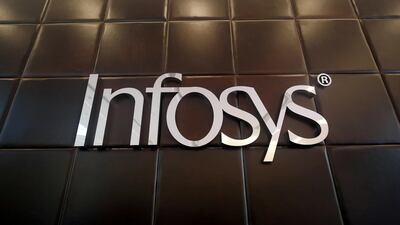Anshul Lodha, the director of the recruitment firm Michael Page India, says the Infosys saga following the resignation of the IT technology company's chief executive Vishal Sikka and the tussle between the board and founders raises important issues regarding corporate structures in India.
"Mr Sikka’s resignation leaves a lot [questions for] India Inc. The most important element to be aware of, when it comes to matters of corporate governance, is that the disputes between founders and professionally appointed CEOs should be handled in a more closed environment," he says.
"There is an increasing interest among shareholders to ensure that, in such situations, differences in opinion are not expressed in public. This will safeguard the credibility and uphold the brand and equity of the company of the company, which in turn has a bearing on the investors."
Mr Lodha says, however, that could impact the way top executives view the possibility of working with firms long-run by the founders.
"This trend could result in reluctance among senior professionals to enter enterprises that have been run by founders for a long period," he says.
"Another aspect to keep in mind is from the perspective of the shareholders. It is important to ensure that once the business is passed on from a founder, their involvement in the business is kept at a minimal level.
"Founders should be cognisant of the fact that once they have let go of their business, they should allow their successor to drive the business and operate the way they see fit."
Mr Lodha adds that in future founder-led firms ought to find ways to settle internal disputes without recourse to potentially damaging public spats.
"Companies should handle incongruities between senior management and founders more amicably," he says.
"The board and the shareholders need to take a larger role in terms of how these situations are handled. Additionally, the shareholders also need to participate and have an active role on the corporate governance proceedings. Moving forward, boards and shareholders should have a more proactive approach in keeping a check on matters of the company.
"Furthermore, in the event that the founder is handing over the business, the role of the founding partner must be very clearly defined to ensure that the company functions in a smooth manner. Companies should build an eco-system or mechanism to safeguard views of the board, founders, and shareholders."

